Keeping Older Adults Hydrated at Home in Hamilton
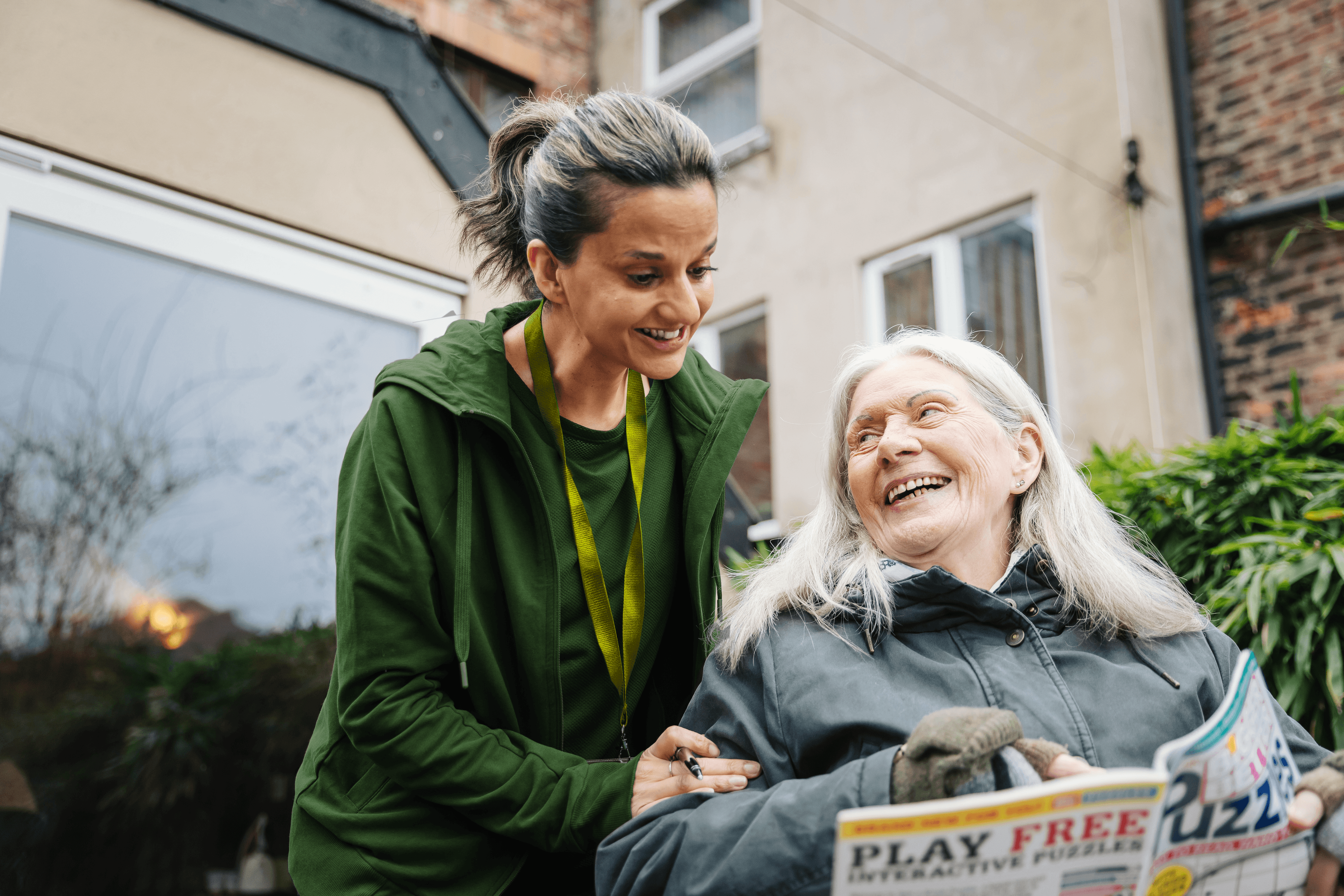
Practical tips for supporting hydration in later life, especially during the summer months.
Are Your Loved Ones Drinking Enough? How to Help Older Adults Stay Hydrated in Hamilton
In Hamilton, the warmer days of July bring not only sunshine but also a greater risk of dehydration, especially for older adults receiving care at home. Whether someone is living with dementia, Parkinson’s, or reduced mobility, staying hydrated is vital to their health and wellbeing. At Home Instead Hamilton, we understand that supporting hydration means more than reminding someone to drink, it’s about making fluids accessible, enjoyable, and part of daily life. In this blog, we share how to recognise the signs of dehydration, recommend foods and drinks that help, and highlight the ones to limit in warmer weather.
Let’s explore how hydration needs change in later life and the practical, person-centred steps families and carers in Hamilton can take to support older adults every day.
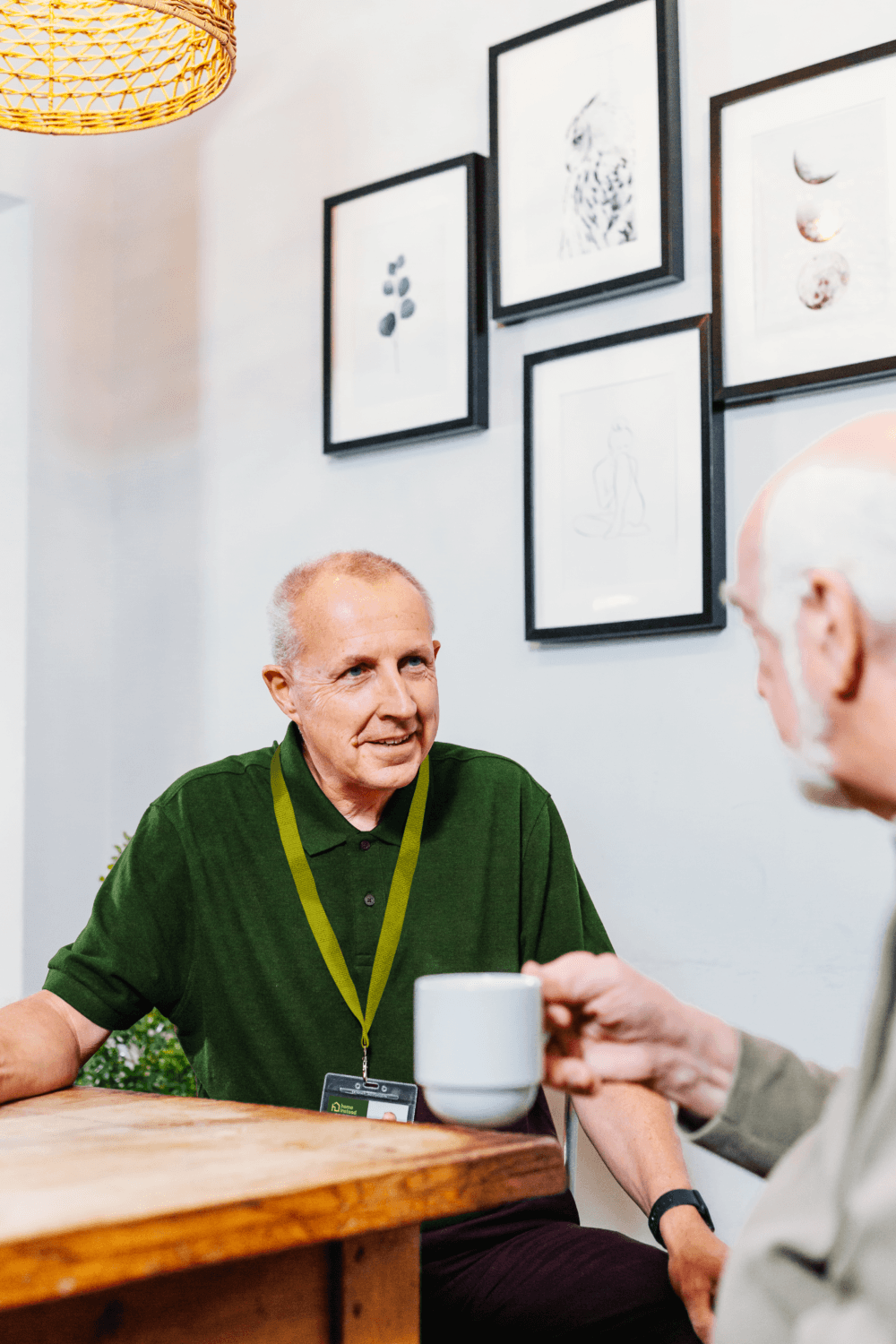
Why Older Adults in Hamilton Are at Higher Risk of Dehydration
Hydration becomes more complex as we age. It’s not just about forgetting to drink water. Older adults experience:
- A weaker sense of thirst, so they may not realise they need fluids.
- A lower percentage of body water, which means they dehydrate more quickly.
- Mobility limitations, making it harder to access drinks.
- Cognitive conditions like dementia, which affect memory and awareness.
- Medication side effects (such as from diuretics or laxatives) that increase fluid loss.
- Toileting concerns, which can lead some older people to drink less to avoid accidents.
These risks are particularly relevant in care settings or for those living alone. At Home Instead Hamilton, we’ve seen how small changes in hydration routines can make a significant impact, both physically and mentally.
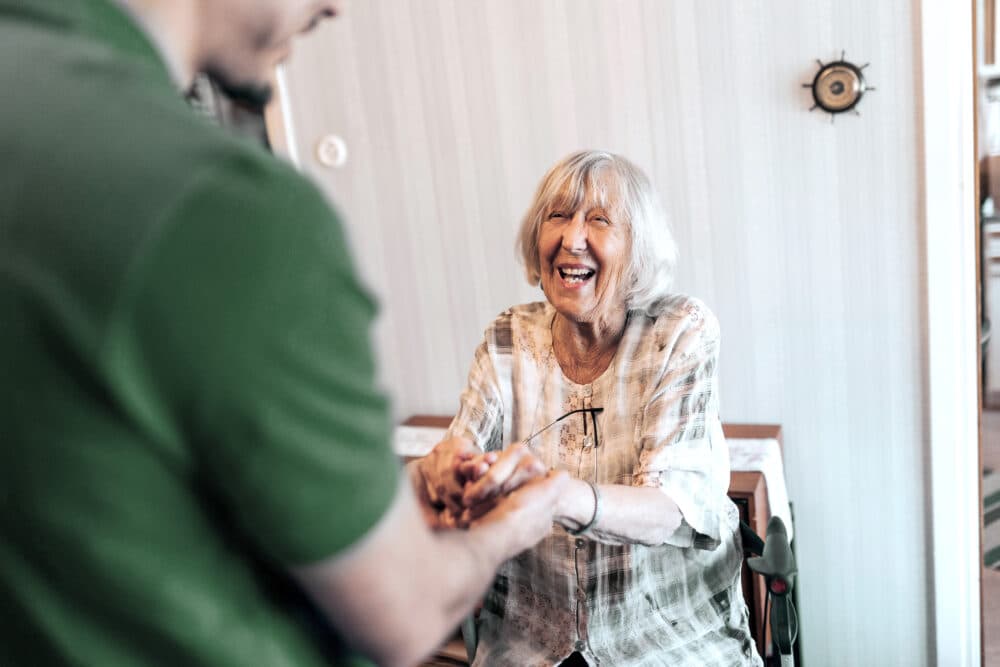
How Much Fluid Do Older Adults Really Need?
The general recommendation is between 1.5 to 2.5 litres of fluid a day—or 6 to 8 glasses. But it’s not just about water. Older adults can stay hydrated through:
- Tea (decaffeinated is best in the evening)
- Milk and milk alternatives
- Smoothies and diluted fruit juice
- Soups and stews
- Water-rich fruits and vegetables (like melon or cucumber)
- Yoghurt, jelly, and custard
Importantly, relying on thirst isn’t enough. Many older people don’t realise when they need a drink. Instead, carers and family members should focus on routine-based drinking, offering fluids at regular intervals throughout the day.
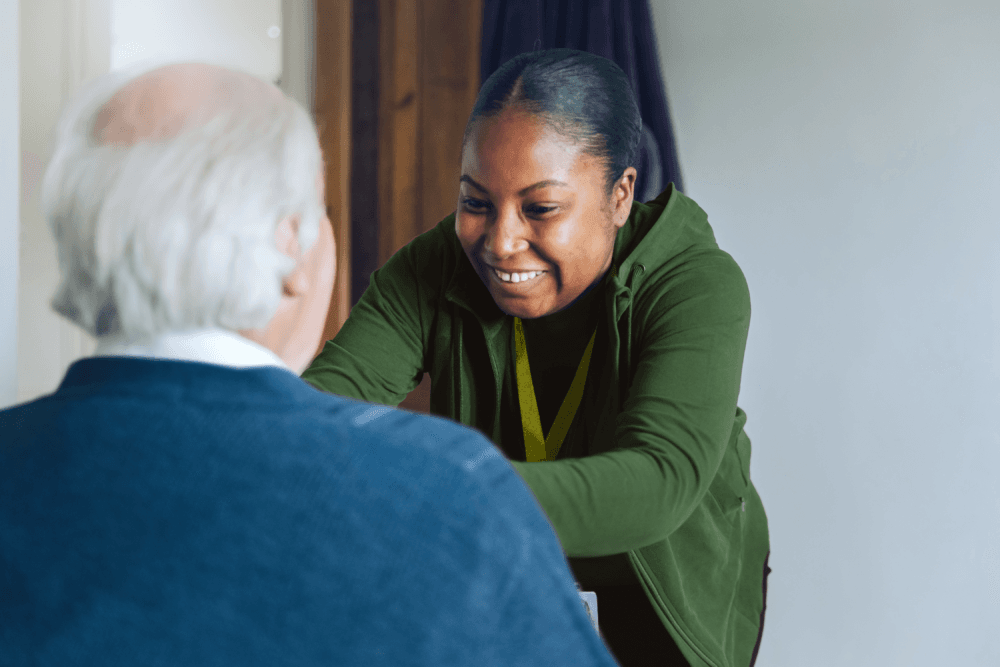
Warning Signs: How to Spot Dehydration in an Older Person
Dehydration in older adults often appears subtly at first, and its symptoms can be mistaken for tiredness, confusion, or illness. Here’s what to look for:
Mild to Moderate Dehydration
- Dry mouth or lips
- Headaches or light-headedness
- Fatigue or drowsiness
- Difficulty concentrating
- Muscle cramps
- Constipation
- Dark-coloured urine
- Confusion or forgetfulness
Severe Dehydration (Medical Emergency)
- Rapid heart rate
- Sudden disorientation
- Inability to walk steadily
- Fainting
- Seizures
- Persistent vomiting or diarrhoea
If you spot any of the signs above, especially in someone who is vulnerable or medically frail, seek medical advice immediately. Call 111 or visit your GP.

Best Drinks and Foods to Support Hydration
What to Drink:
- Still or sparkling water (flavour with lemon, mint, or cucumber)
- Decaffeinated tea or coffee
- Milk or oat/soya alternatives (fortified if possible)
- Diluted squash or juice (watch for sugar)
- Fruit smoothies (best when homemade with minimal added sugars)
- Soups and broths (vegetable-based are ideal)
- Oral rehydration drinks (recommended only under medical supervision)
What to Avoid:
- Energy drinks – These contain caffeine and stimulants that can worsen dehydration.
- High-sugar soft drinks – Can lead to blood sugar spikes and increased urination.
- Excessive alcohol – A diuretic that can impact balance, sleep, and hydration.
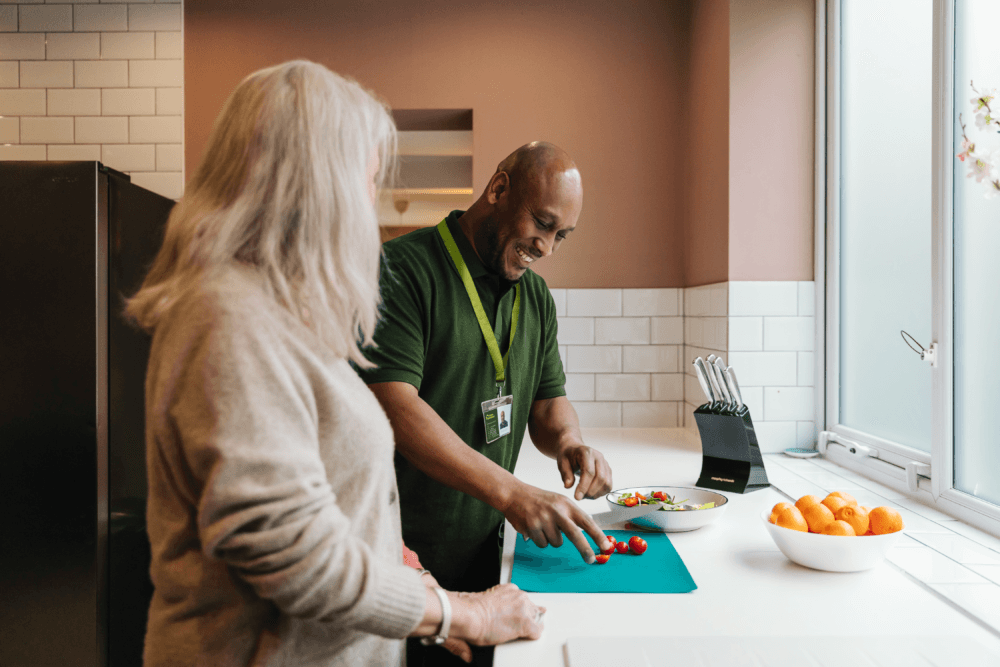
Foods That Help Keep Older Adults Hydrated
Some older adults struggle with drinking large amounts. In these cases, hydration through food is extremely helpful. Great options include:
- Melon, cucumber, strawberries, tomatoes, and oranges
- Yoghurt and soft cheeses
- Custard, jelly, and stewed fruits
- Vegetable-heavy soups and casseroles
- Porridge or rice with added milk
These foods can be included in everyday meals and snacks, supporting hydration without requiring frequent cups of water.
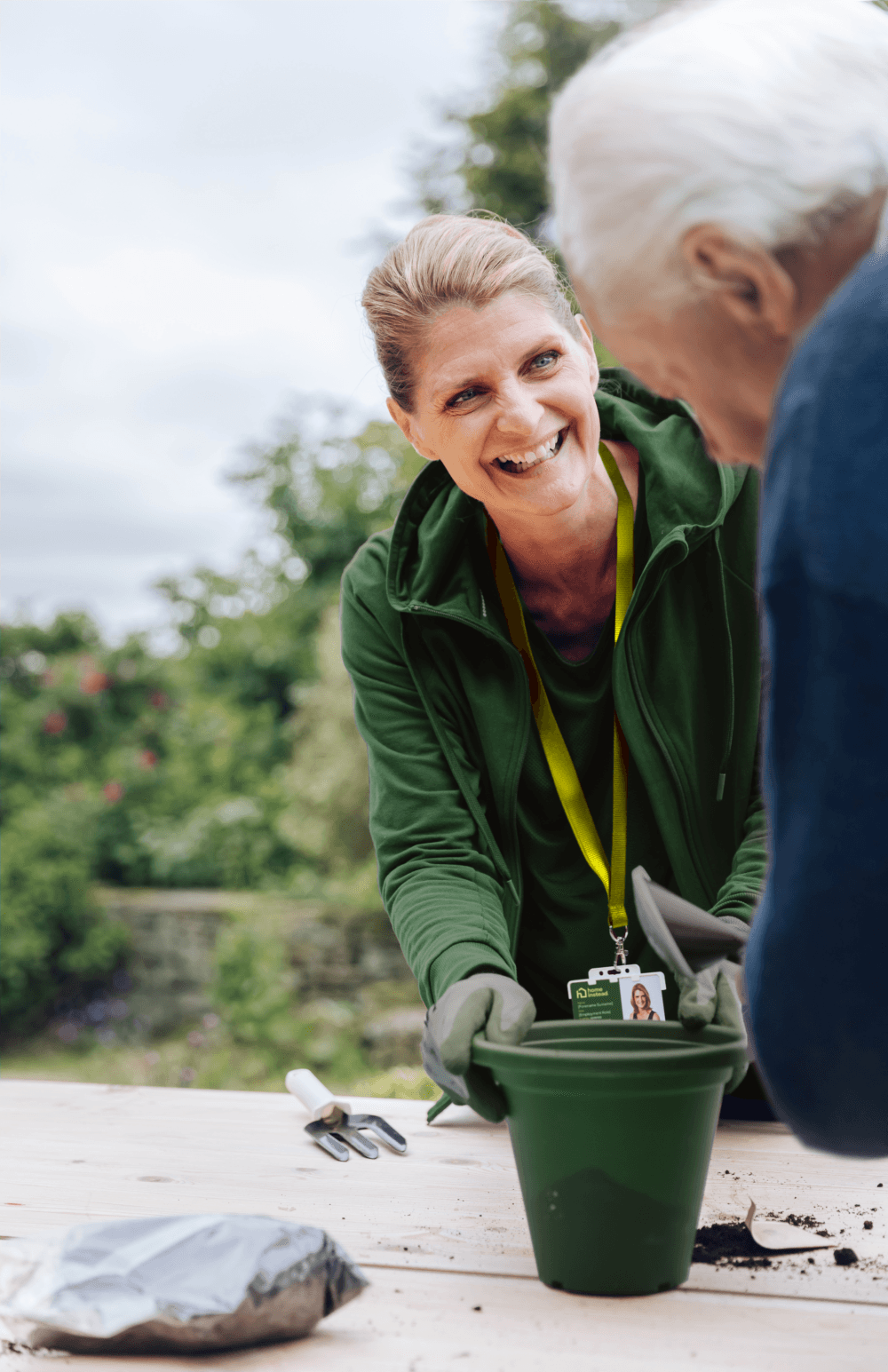
Practical Hydration Strategies for Older Adults at Home
1. Make Fluids Easy to Access
Keep jugs of water and preferred drinks within reach, on a tray or small side table. Use cups or beakers that are light, easy to grip, and familiar to the person.
2. Use Routine and Reminders
Offer drinks alongside medication, meals, or regular activities like watching TV. Set gentle reminders or use a whiteboard to record drinks throughout the day.
3. Include Hydrating Snacks
Smoothies, fruit bowls, yoghurt, or custard can be offered as snacks or desserts. For people with reduced appetite, these provide both hydration and nutrition.
4. Support Continence Comfortably
Incontinence worries often stop older adults from drinking. Reassure them that staying hydrated can actually reduce urinary urgency and infections. Offer regular, assisted toilet breaks if needed.
5. Tailor Hydration to the Individual
Everyone is different. For example, Ethel, who lives with early-stage dementia, may forget to drink unless prompted. Her care plan includes tea with milk in her favourite mug and lemon squash with lunch. She’s also supported with regular toilet breaks and monitored for fluid intake.
At Home Instead Hamilton, we believe that tailoring hydration plans to the individual is essential. Personal comfort, memory triggers, and preferred flavours make all the difference.
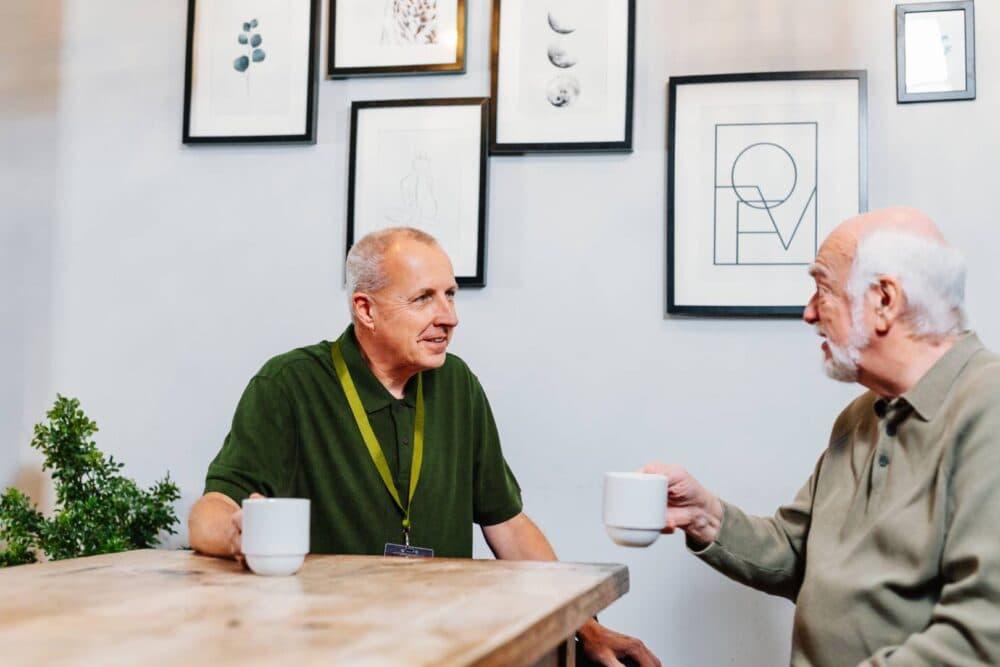
Hydration in a Home Care Setting
For older adults receiving care at home, consistent hydration support can make a meaningful difference. Our Care Professionals at Home Instead Hamilton use simple, effective approaches to make hydration part of each day. These include:
- Offering drinks regularly throughout the day, not just with meals
- Using visual prompts and gentle reminders to encourage sipping
- Adapting drinks to suit personal taste and physical needs
- Monitoring fluid intake, especially during warmer weather or illness
- Recommending low-caffeine drinks in the afternoon and evening
Many of our clients enjoy creative hydration routines, such as fruit-infused water jugs, tea-time companionship, and colourful cups that encourage independent drinking. These small, thoughtful practices help make hydration enjoyable and easy to maintain at home.
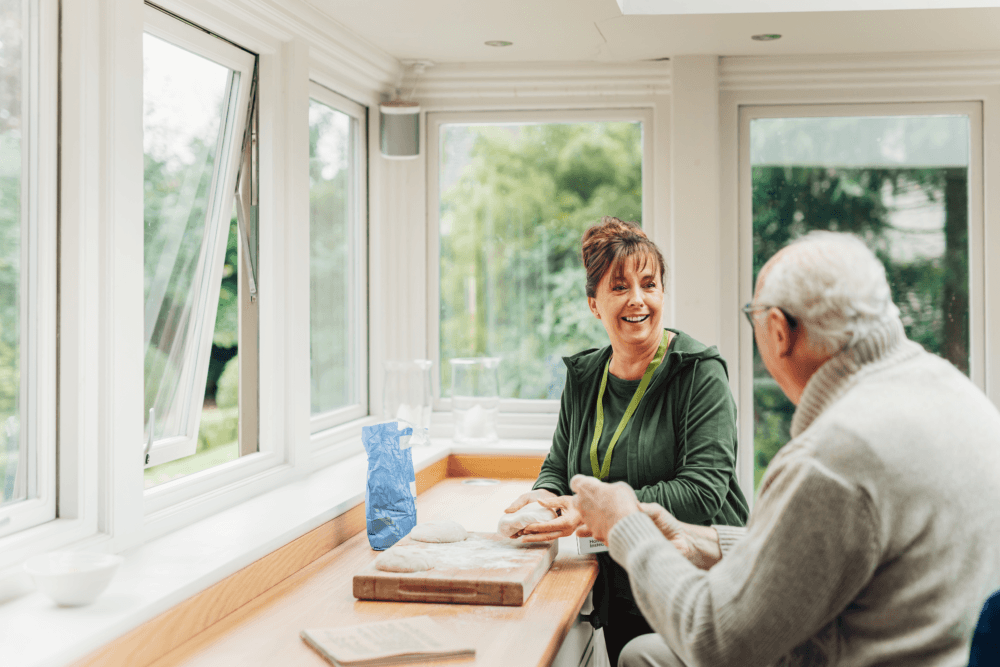
Technology to Help with Hydration at Home
Living independently doesn’t mean living unsupported. These tech tools can help older adults stay hydrated and safe:
- Hydration reminder apps or smartwatches – Send regular alerts to drink.
- Kitchen usage monitors – Help carers detect reduced eating or drinking.
- Personal alarms – Essential if dehydration leads to a fall or confusion.
- Fall detection wearables – Offer peace of mind to family carers.
At Home Instead Hamilton, we work with families to find simple tech solutions that support independence while keeping safety in mind.
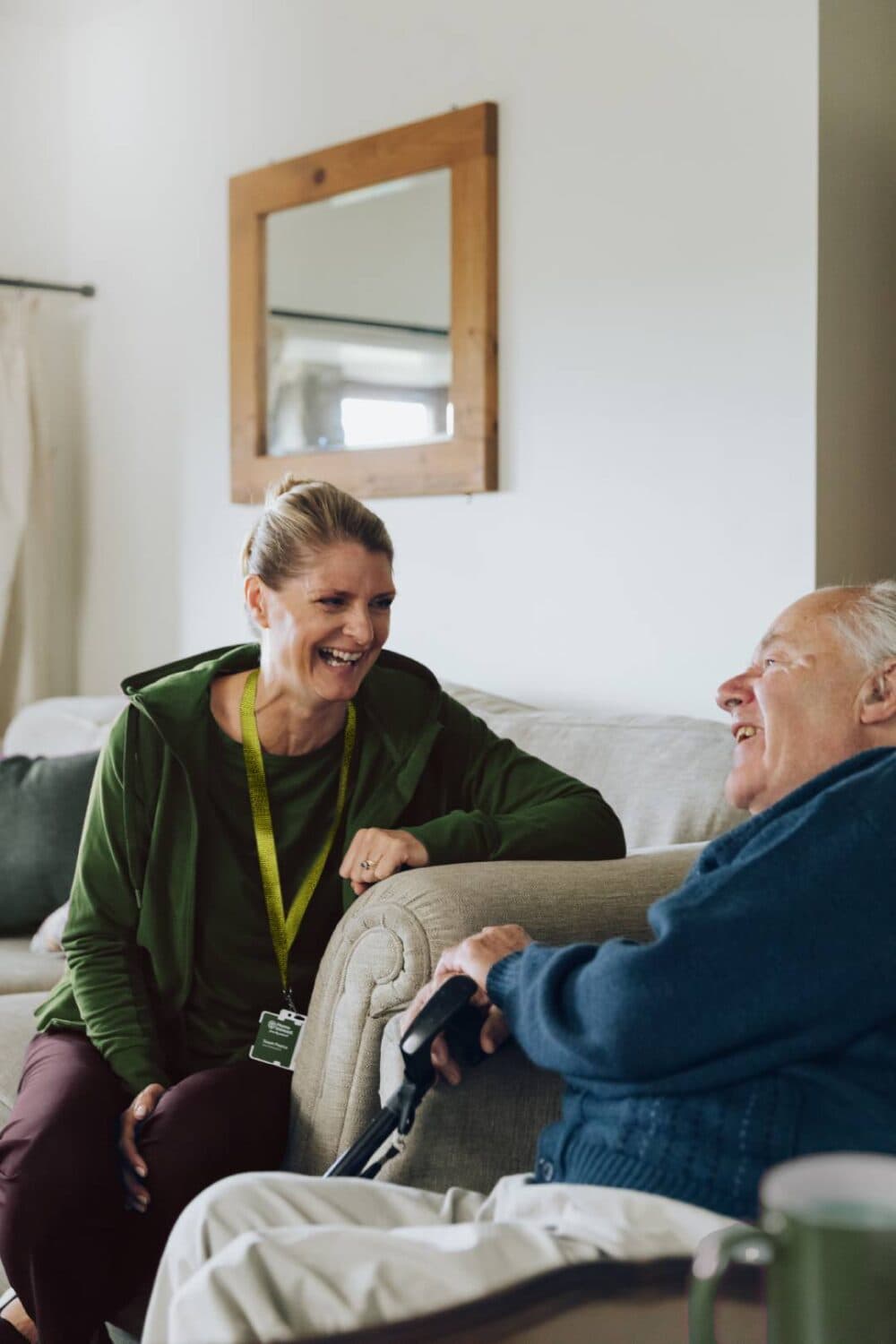
Final Thoughts
Hydration is one of the easiest ways to support an older person’s health, but also one of the most overlooked. A well-hydrated older adult is less likely to fall, more alert, more comfortable, and better able to manage long-term health conditions.
For those living with memory loss, mobility difficulties, or serious illness, the challenge is greater, but not impossible. It’s about practical, daily support: making drinks appealing, accessible, and part of a routine. It’s about understanding fears, like incontinence. And above all, it’s about working together, families, carers, and professionals, to keep hydration front of mind.
If you’d like more advice about supporting hydration, home care, or dementia support in South Lanarkshire, get in touch with Home Instead Hamilton. We’re here to help.
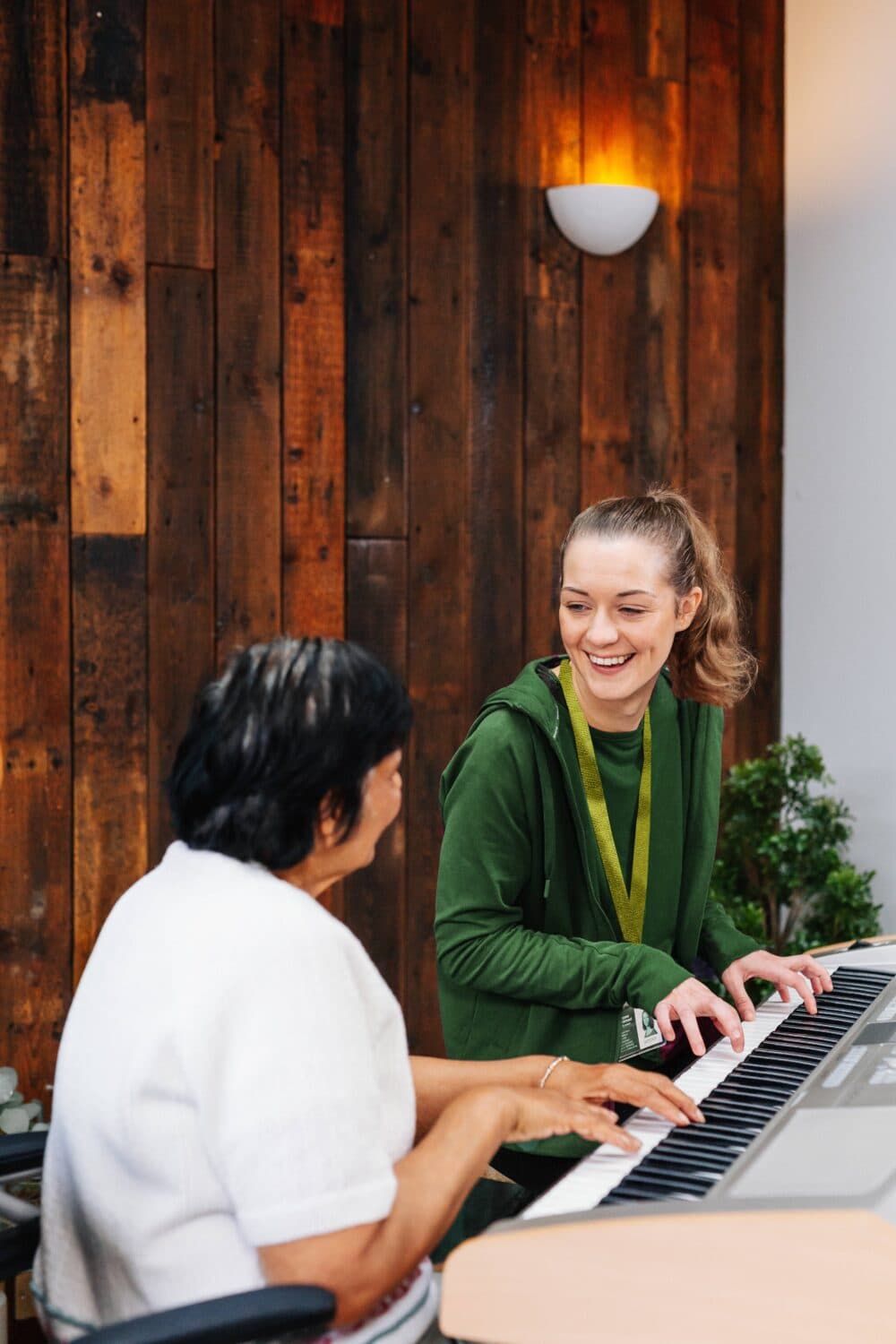
Areas We Serve
Hamilton, Uddingston, Motherwell, Bothwell, Strathaven, Bellshill, Rutherglen, Cambuslang
G71 5, G71 6, ML2 7, ML4 3, ML1 3, ML1 2, ML2 0, ML4 1, ML4 2, G72 6, G73 5, G71 8, G72 9, G73 4, G71 7, ML1 1, ML1 4, G72 0, ML2 8, ML1 5, G72 8, G72 7
Unit 2 Brandon House Business Centre, 23-25 Brandon St, Hamilton ML3 6DA